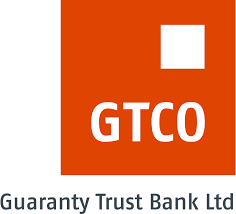The Nigeria Customs Service (NCS) has further revised the foreign exchange (FX) rate for customs import duties and cargo clearance to N1,405.46 per dollar currently.
The latest FX rate as reflected on the Service’s website represents the fifth consecutive time in the past two weeks, the rate had dropped. On March 15, the rate stood at N1,612 per USD.
This aligns with the Service’s recent declaration that the FX rate for import duties and cargo clearance would be determined by the Central Bank of Nigeria (CBN), based on the official market rate.
A breakdown of the consistent drop in the FX rates in the last few days showed that on March 15, it stood at N1,612/$1, dropped to N1,593/$1 the following day, on March 19 it further dropped to N1,572/$1, on March 23, it declined to N1,448/$1 and as of today, March 27, the rate ebbed to N1,405/$1.
The sustained appreciation of the local currency’s FX value against the US’ greenback is attributed by analysts to sundry measures by the Central Bank of Nigeria (CBN) to moderate the volatility in the nation’s FX markets.
For instance, only yesterday the apex bank’s Monetary Policy Committee (MPC) ended its two-day meeting on a hawkish policy stance, raising the Monetary Policy Rate (MPR) by 200bps to 24.75% and also changed the asymmetric corridor from +100/-700 t0 +100/-300 around the MPR.
Today’s upward review of the (MPR), which is the benchmark lending rate for banks, was the 10th consecutive time the committee jacked it up since May 2022
The committee, however, retained the CRR of Commercial banks at 45.00% and the liquidity ratio constant at 30.00% but adjusted the CRR upwards for Merchant banks from 10% to 14%.
At the meeting which was the second to be held by the MPC this year, the CBN governor, Yemi Cardoso, hinged the decisions of the committee on current macroeconomic indices in the domestic economy and global economic factors, amongst other factors.
Commenting on the factors that informed the MPC members’ decisions, he explained that the measures were needed to control inflation to ensure that ordinary Nigerians’ purchasing power is restored in the short to medium term.
Cardoso clarified: “Members noted the continued rise in headline inflation was driven largely by food prices because of supply shortages and high cost of logistics distribution.”




